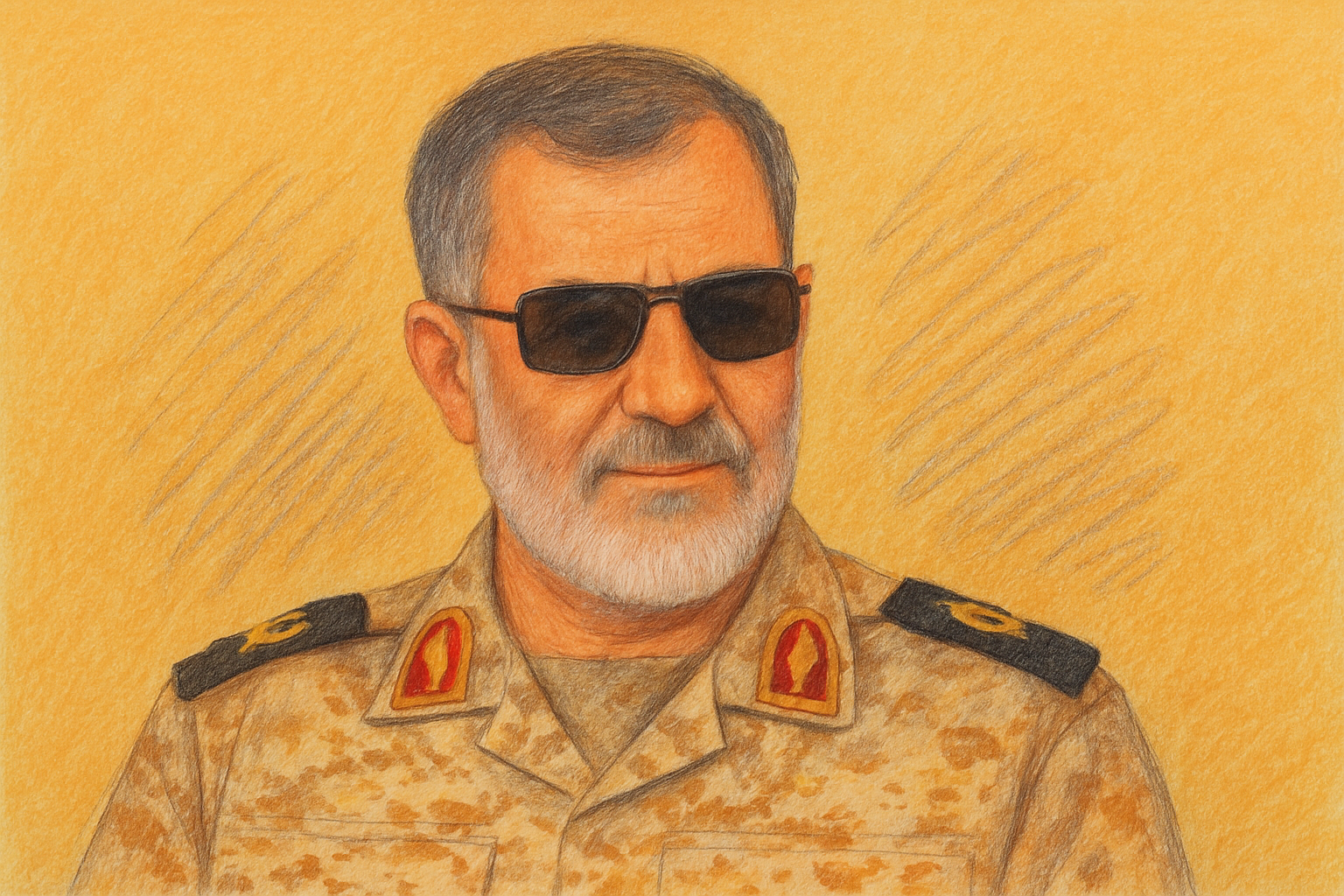In a pivotal move following a series of Israeli airstrikes that killed top military officials and nuclear scientists, Iran’s Supreme Leader Ayatollah Ali Khamenei appointed Major General Mohammad Pakpour as the new commander-in-chief of the Islamic Revolutionary Guard Corps (IRGC).
The decision comes amidst heightened regional tension and a potential realignment of Iran’s military posture.
Pakpour, 64, is a long-serving IRGC veteran known for his field leadership and academic background. He first rose through the ranks during the brutal 1980-88 Iran-Iraq War, later commanding the 8th Najaf Division and the 31st Ashura Division.
His combat experience, especially in restive regions like Kurdistan, earned him a reputation as both a tactical leader and a reliable figure within the IRGC hierarchy. Since 2009, he has served as the commander of the IRGC Ground Force, overseeing operations that extended beyond Iran’s borders and into Syria and Iraq, where Iranian forces have propped up allied militias and regimes.
Pakpour holds a master’s degree in geography from the University of Tehran and a Ph.D. in political geography from Tarbiat Modares University. His academic insights into geopolitical dynamics have reportedly informed his approach to regional influence and asymmetric warfare. His writings and internal speeches have often emphasised the ideological and strategic necessity of resisting Western encroachment and strengthening Iran’s deterrent capabilities.
His elevation comes at a time of acute crisis.
The recent Israeli operation, described by Tehran as an “act of terror,” destroyed several key military and nuclear installations and killed at least 78 individuals, including former IRGC commander Hossein Salami. The strikes triggered widespread anger within Iran and strong vows of retaliation.
In his first public statement following the appointment, Pakpour declared that “the gates of hell will soon open to this child-killing Zionist regime,” signalling a potentially more aggressive posture from Tehran in the days ahead.
International observers note that Pakpour’s leadership may bring operational continuity, but his wartime credentials and ideological commitment to the Islamic Republic’s founding principles could also embolden hardline elements. While some view him as a stabilising figure in the wake of leadership decapitation, others warn that his rise could lead to expanded proxy operations and an escalated confrontation with Israel and the United States.
Pakpour’s appointment also casts a shadow over upcoming diplomatic engagements. Just days before the Israeli strikes, secret backchannel talks on Iran’s nuclear programme were reportedly scheduled to resume in Oman. With Pakpour now leading the IRGC– an institution closely tied to Iran’s nuclear and missile ambitions– Western diplomats fear that the space for negotiation may narrow as Tehran recalibrates its priorities under military pressure.
Whether Pakpour’s leadership marks a decisive turning point for Iran’s regional role or serves as a defensive consolidation remains uncertain. What is clear, however, is that his appointment is not merely a replacement– it is a statement of intent. The Islamic Republic, bruised but unbowed, is rallying its military establishment under a seasoned warrior with a clear ideological compass and a mandate to respond.


